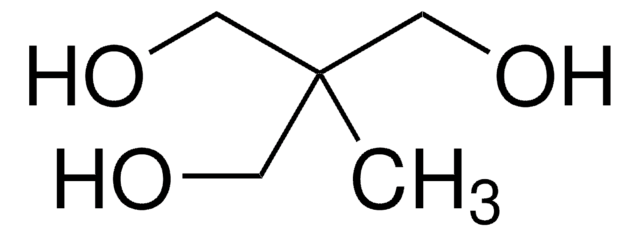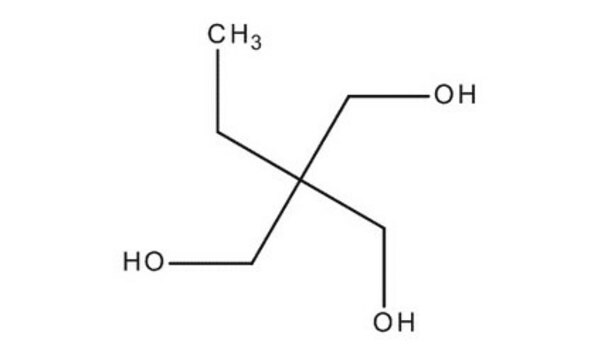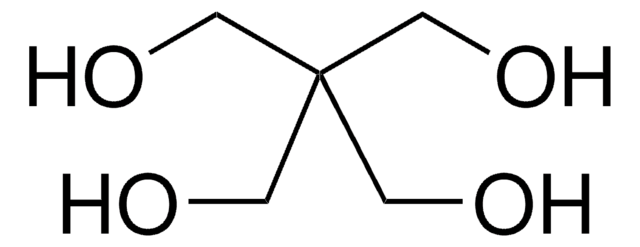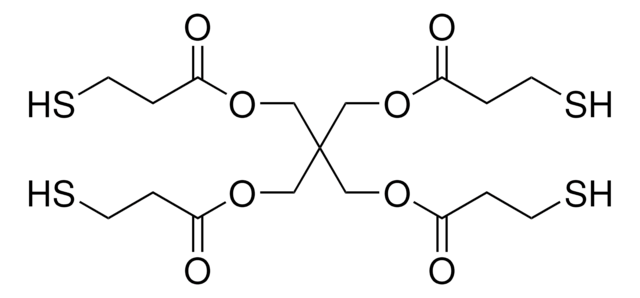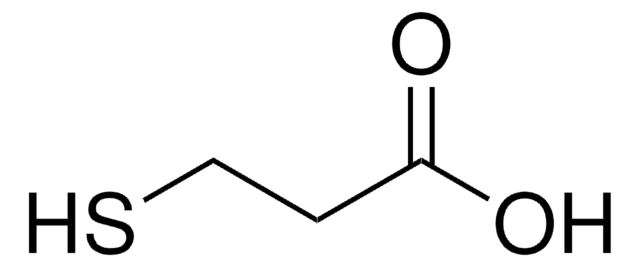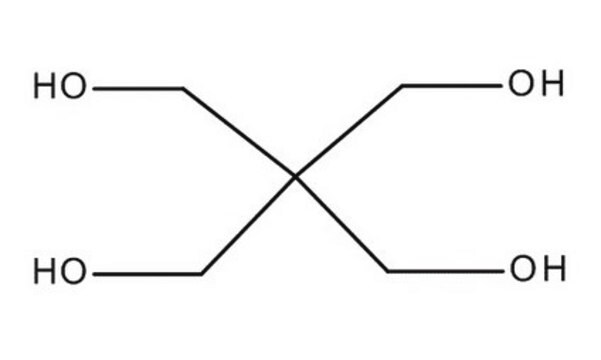393657
2-Hydroxymethyl-1,3-propanediol
97%
Synonym(s):
Trimethylolmethane, Tris(hydroxymethyl)methane
Sign Into View Organizational & Contract Pricing
All Photos(1)
About This Item
Linear Formula:
HC(CH2OH)3
CAS Number:
Molecular Weight:
106.12
Beilstein:
1733340
EC Number:
MDL number:
UNSPSC Code:
12162002
PubChem Substance ID:
NACRES:
NA.23
Recommended Products
Quality Level
Assay
97%
form
solid
mp
63-68 °C (dec.) (lit.)
SMILES string
OCC(CO)CO
InChI
1S/C4H10O3/c5-1-4(2-6)3-7/h4-7H,1-3H2
InChI key
SFRDXVJWXWOTEW-UHFFFAOYSA-N
Looking for similar products? Visit Product Comparison Guide
Storage Class Code
11 - Combustible Solids
WGK
WGK 3
Flash Point(F)
192.2 °F - closed cup
Flash Point(C)
89 °C - closed cup
Personal Protective Equipment
dust mask type N95 (US), Eyeshields, Gloves
Choose from one of the most recent versions:
Already Own This Product?
Find documentation for the products that you have recently purchased in the Document Library.
Customers Also Viewed
Elena Tianfei Yuan et al.
Electrophoresis, 38(19), 2447-2455 (2017-06-22)
Phosphorylated peptides are attractive targets in the study of the phosphoproteome. Here, we introduce a simple and convenient micropipette-tip method for the separation of phosphorylated and nonphosphorylated peptides by using a phosphate-binding zinc(II) complex of 1,3-bis(pyridin-2-ylmethylamino)propan-2-olate (Phos-tag). A 200-μL micropipette
Iuliana Mihalache et al.
Physical chemistry chemical physics : PCCP, 21(18), 9564-9573 (2019-04-26)
An interconnected graphene network (IGN) structure with excellent photoluminescence (PL) properties was synthesized using a one-pot microwave-assisted hydrothermal carbonization route. The material exhibited intense and excitation-wavelength dependent PL emission located mainly in the UV-blue light range (300-450 nm). The result
Raja Chinnappan et al.
Mikrochimica acta, 186(7), 406-406 (2019-06-12)
Okadaic acid (OKA), a marine toxin produced by dinoflagellates, is responsible for most human diarrhetic shellfish poisoning-associated health disorders. A competitive displacement assay for OKA is described here. An OKA-binding aptamer was truncated with two sequences, one labeled with 6-carboxyfluorescein
Libia Alejandra García-Flores et al.
Redox biology, 11, 586-591 (2017-01-23)
We analyzed biomarkers of lipid peroxidation of the nervous system -F
Raúl Domínguez-Perles et al.
Food research international (Ottawa, Ont.), 107, 619-628 (2018-03-28)
Phytoprostanes (PhytoPs) and phytofurans (PhytoFs) are prostaglandin-like compounds, contributing to defense signaling and prevention of cellular damage. These plant oxylipins result from autoxidation of α-linolenic acid (ALA) and have been proposed as new bioactive compounds due to their structural analogies
Our team of scientists has experience in all areas of research including Life Science, Material Science, Chemical Synthesis, Chromatography, Analytical and many others.
Contact Technical Service